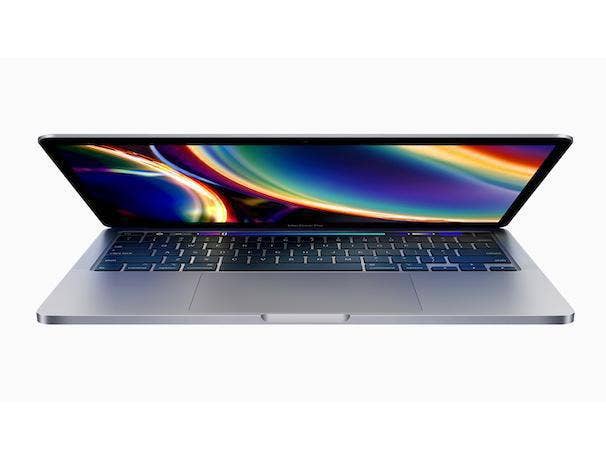OPINION: Apple Has Bigger Goals For Mac Than You Realize
With the launch of the company’s custom M1 chip for Macs, Apple finally has everything it needs to pursue major market share gains.

With the arrival of Apple Silicon, the pieces are now all in place for Apple to make a run at serious market share gains for its Mac line.
At last.
Through the long history of the Mac vs. PC rivalry, the Mac has never been taken very seriously by the corporate world (outside of a few industries).
[Related: Apple’s M1-Powered MacBook Air And Pro: 5 Things To Know]
And, despite their enthusiasm, Mac loyalists have remained in the minority among consumers.
Both of those factors have been changing, of course.
Apple’s push in a more business-friendly direction and greater attention to the Mac line in recent years--paired with the growth of Apple-focused management software such as Jamf and Addigy--have begun to make a dent in corporate America for the Mac.
The Mac hasn’t been universally embraced by IT departments--but increasingly, it’s not taboo, either. Millennials and Gen Zers just keep expanding their influence within corporations. And they’re bringing a stronger preference for Apple products with them, helping to push the corporate move to Mac in an unprecedented way.
Still, the expense of the Mac has remained an obstacle.
But Apple seems capable of addressing that with the debut of its in-house chips, starting with the M1.
One estimate suggests that Apple will save $2.5 billion in costs through launching the M1--and that’s just in 2020.
Whether Apple will pass these savings along to buyers is not clear. The company did drop the starting price for the M1-powered Mac Mini by $100, but pricing for the M1 MacBook models so far is staying the same.
Regardless, the option is now there for Macs to compete with PCs on price.
And we haven’t even mentioned the actual usage improvements from Apple Silicon.
Even the first generation of Apple-designed chips appears to offer performance gains compared to Intel. But Apple is reportedly looking to accelerate those gains significantly for the next generation of chips, likely to debut next year.
Battery life on the Mac also should get a much-needed boost with Apple’s processors.
So when you put all of these factors together, what do you get?
Potentially, you get a Mac line that is cheaper, faster and more popular in the emerging workforce than the PC.
Does that not sound like a recipe for market share gains? I think it does. (The Mac held just 7.7 percent of the global PC market as of the third quarter of the year—essentially flat from the year before—with a 14.5-percent market share in the U.S., research firm Gartner reported.)
Apple may also have stronger motivations to go after market share for Mac than in the past.
Addigy CEO Jason Dettbarn told me recently that with its massive investment into custom Mac processors, Apple will be pushing much harder for Mac sales growth to justify the investment.
“Now they’ve got to really produce volume [for Mac]. Because anytime you’re making your own chips, it’s about volume,” Dettbarn said.
The timing is also ideal for Apple on the revenue side, as iPhone growth has become much harder to come by. And Apple may in fact be looking to follow its iPhone playbook while pursuing growth for the Mac, according to a solution provider executive, who asked to not be identified.
“Looking at how aggressive Apple has been on the mobile side, I think it will be natural for the Apple team to pick up and expand further on the desktop/laptop side,” the executive said.
Ultimately, “they have now passed a magical technology/OS mark that no other competitors have accomplished – common chip technology and operating system across all form factors. So they could also start bringing over more and more features across platforms and form factors,” the executive said. “This will tie customers even stronger to their ecosystem, and increase more Mac sales.”
Over the longer term, the Mac’s performance advantage might start to win over even the holdouts. If the next generations of Apple Silicon prove to be as fast as reported, that may be very bad news for Intel and makers of Intel-based PCs, said Jerry Zigmont, owner of MacWorks, an Apple consultancy in New Haven, Conn.
“Unless some other manufacturer answers Apple’s chip design, and comes up with some competitor,” Zigmont said, “Apple could decimate the market in terms of market share.”
Full disclosure: I have personally owned a number of Macs over the years and once did consider myself a Mac loyalist. However, my most recent personal laptop purchase was a Microsoft Surface Book 2.